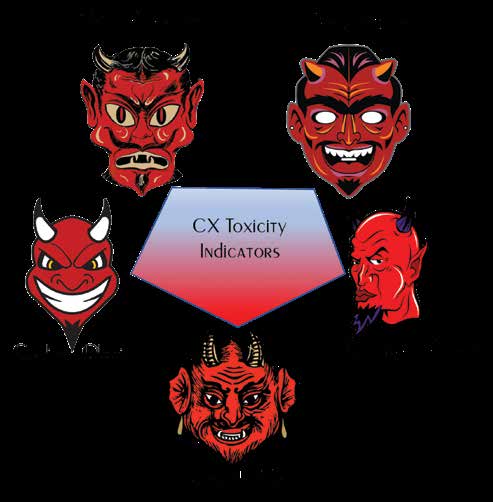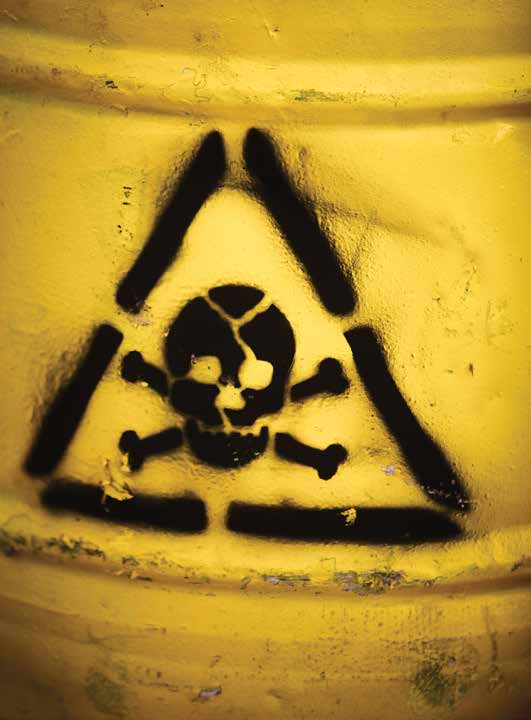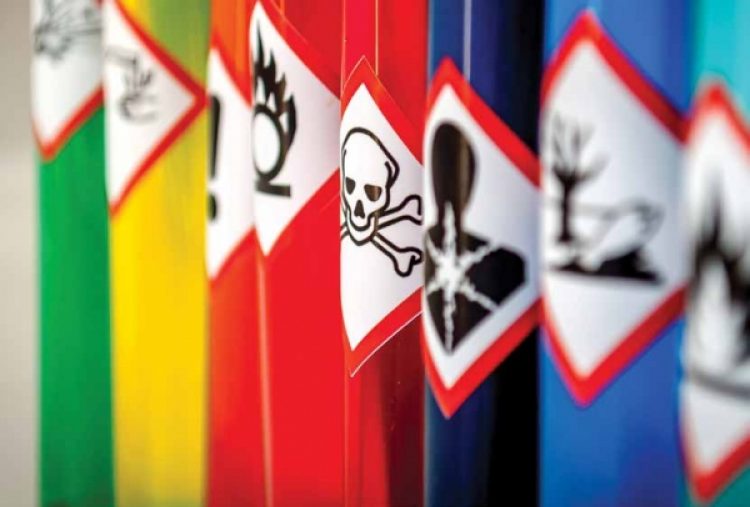IAG explains the importance of company culture in achieving exceptional customer experience and the five signs that your culture might be toxic to your customer goals.
Numerous studies on customer experience (CX) highlight the crucial role company culture plays in delivering a great customer experience. Yet very few casino operators have addressed cultural issues in their endeavors to improve customer experience.
Organizational culture, simply stated, comprises the values, norms and behaviors that determine the social and psychological environment of the organization. While virtually every gaming company has the word “customer” in its mission statement and values statements, the operational ethos of the workplace is often at odds with the stated mission and values.
I have advised many gaming companies on the topic of customer experience and have been invited to map customer journeys at several billion-dollar casino properties. In every engagement, I raise the issue of company culture as a precursor to the coalface initiatives to tackle customer experience. In response, in most instances, I get a nod from top management – a nod signaling weak agreement but also conveying, “We don’t want you to go there, you do what you’ve been hired to do.”

Having a truly customer-centric culture brings into alignment other key CX elements such as employee engagement, voice of customer initiatives and designing the right customer journeys. Despite the vast body of literature emphasizing culture’s paramount role in making a great CX happen, I rarely find gaming clients who give me permission to examine their organization’s culture.
Senior management always seems extremely leery about having the company culture objectively assessed. Yet, without explicitly addressing culture, all CX initiatives will be shallow and will fail to penetrate what lies at the core of great customer experiences.
Over the years, I have also learnt that it is not necessary to wear my psychometrist’s hat to be able to distinguish CX friendly cultures from antagonistic ones. Here are five clear indicators of toxic cultures that can smother any attempts at meaningful CX enhancement.
DELUSIONS OF GRANDEUR
There is an interesting and rather cryptic verse in the ancient Indian Sanskrit text of the Kena Upanishad which reads, “Yasyamatam tasya matam matam yasya na veda sah; avijnatam vijanatam vijnatam avijanatam.” Loosely translated, it goes something like this, “To whomsoever it is unknown, to him it is known. To whomsoever it is known, he does not know. It is unknown to those who know it and known to those who do not know.”
I am reminded of this couplet every time I hear senior management talk, without a shadow of doubt, about the outstanding experience their company offers its customers. Companies who proclaim that they are the best in CX delivery seldom expend any effort in Voice of Customer (VoC) initiatives or employee engagement studies. They just know. This kind of management hubris will ultimately spell doom for CX providers.
True CX stalwarts like Tony Hsieh of Zappos or Herb Kelleher, former Southwest Airlines CEO, never take the CX quality they deliver as a given. They always have a finger on the pulse of customer and employee sentiment. Furthermore, they espouse humility as a prized value.
BLOCKAGES IN UPWARD COMMUNICATION
The importance of effective employee communication can’t be over-emphasized. Employees are the conduit to customers and to the outside world. Hardly anybody in the organization knows more about customer expectations and frustrations than your employees. Yet upward communication has become a huge challenge for most gaming companies. In some regions such as Macau, the communication difficulties are conveniently attributed to language differences. Language is but one variable in frontline staff interactions.
 Sometimes, management knowingly or unknowingly sends out cues through which employees only communicate to senior management what management wants to hear. At other times, employees are led to believe that management’s time is precious and the bosses should not be bothered by low-level employees. In every CX or employee engagement study I have been involved with, frontline staff have cited communication with management as the single biggest problem facing employee engagement or CX delivery.
Sometimes, management knowingly or unknowingly sends out cues through which employees only communicate to senior management what management wants to hear. At other times, employees are led to believe that management’s time is precious and the bosses should not be bothered by low-level employees. In every CX or employee engagement study I have been involved with, frontline staff have cited communication with management as the single biggest problem facing employee engagement or CX delivery.
When communication lines between employees and senior management are opened, staff feel valued and empowered. Their inputs regarding customer experience tend to be accurate and timely. Blockages in upward communication deprive management of vital information and invariably promote cultural toxicity.
DISPROPORTIONATE ADHERENCE TO COMPLIANCE ISSUES
Gaming is one of the most regulated industries and is getting increasingly so. Usually, the first topic new hires hear about in their corporate orientation is the 30 ways they will be fired for violating company policies. While issues of compliance are no doubt very important, sometimes an obsession with compliance can result in losing sight of the very customers employees are supposed to serve.
Compliance matters should be stressed in communication with employees at all levels, however the messages should be delivered in a manner that is not threatening in appearance or disempowering in consequence. Fear and disenfranchisement among frontline employees often leads to rote behaviors, where over time, employees begin to hate their jobs and develop an apathy for those they serve.
Effective reframing of company policies and compliance issues such that they become more palatable to lower-level employees goes a long way toward creating a humanized workforce that focuses on serving targeted humans, their customers.
POWER DISTANCE BETWEEN MANAGEMENT AND FRONTLINE STAFF
Power distance is a key dimension along which the Dutch social psychologist Geert Hofstede classified cultures. Individuals in cultures demonstrating a large power distance are very deferential to figures of authority and generally accept an unequal distribution of power, while individuals in cultures demonstrating small power distance readily question authority and expect to participate in decisions that affect them.
Companies that display large power distance between management and frontline employees generally operate in a climate where tasks get accomplished by exercise of authority and control. Frontline staff tend to be fearful of top management and open communication between workers and management is not encouraged. Superiors regard their lower-level employees as a “different kind of people,” often forgetting where they started in this industry.
It is difficult to provide a great customer experience in an organizational culture depicting large power distance. Fear of superiors among employees stifles creativity and innovation and breeds an “us versus them” mentality that thwarts open communication and creates latent hostility between workers and management.

IMPERMEABLE SILOS
A great customer experience results from the active contribution of several departments at all levels. Ideally, every single person within the organization should be able to articulate how they contribute to the total CX. Furthermore, top and middle management needs to understand and appreciate the role that different functional areas play at every single touchpoint along the customer journey. For most touchpoints, HR, Marketing and IT invariably have a role to play, either by way of frontstage employee behaviors or by way of support systems and services required at each touchpoint. Despite this interdependency, it is hard to find gaming companies where there exists synergy and harmony between departments such as Marketing and Operations.
With the passage of time, many organizations evolve into a conglomerate of impenetrable silos where each department becomes inward looking and self-absorbed. There is often open hostility and ruthless politicking among some departments. This internal bickering is carried out on the organization’s time at the expense of the end customer. When effective crossdepartmental teamwork is lacking, CX is often the first casualty.
CONCLUSION
Writing about his company in The New York Times, Tony Hsieh said, “At Zappos, we really view culture as our number one priority. We decided that if we get the culture right, most of the stuff, like building a brand around delivering the very best customer service, will just take care of itself.”
It was this underlying belief that led Hsieh to build what would arguably become the best CX company in the world.
Casinos in a lot of gaming jurisdictions have thus far been lucky to be operating in regional monopolies, duopolies or sellers’ markets. But the competitive environment is changing and changing fast. With increasing competition within and across markets, market leadership will quickly become a function of how well you serve the customer, not how fast you build capacity. Any initiatives to enhance the customer experience will have to be built on a strong customer-centric cultural foundation.
Unwarranted excessive pride, poor organization-wide communication, overemphasis on compliance at the cost of customer service, unhealthy power dynamics and strong silos are five red flags signaling a culture that is toxic to CX. Companies that are sincere about improving their customer experience should, first and foremost, take an inventory of their existing organizational culture and air out all toxicity.



































